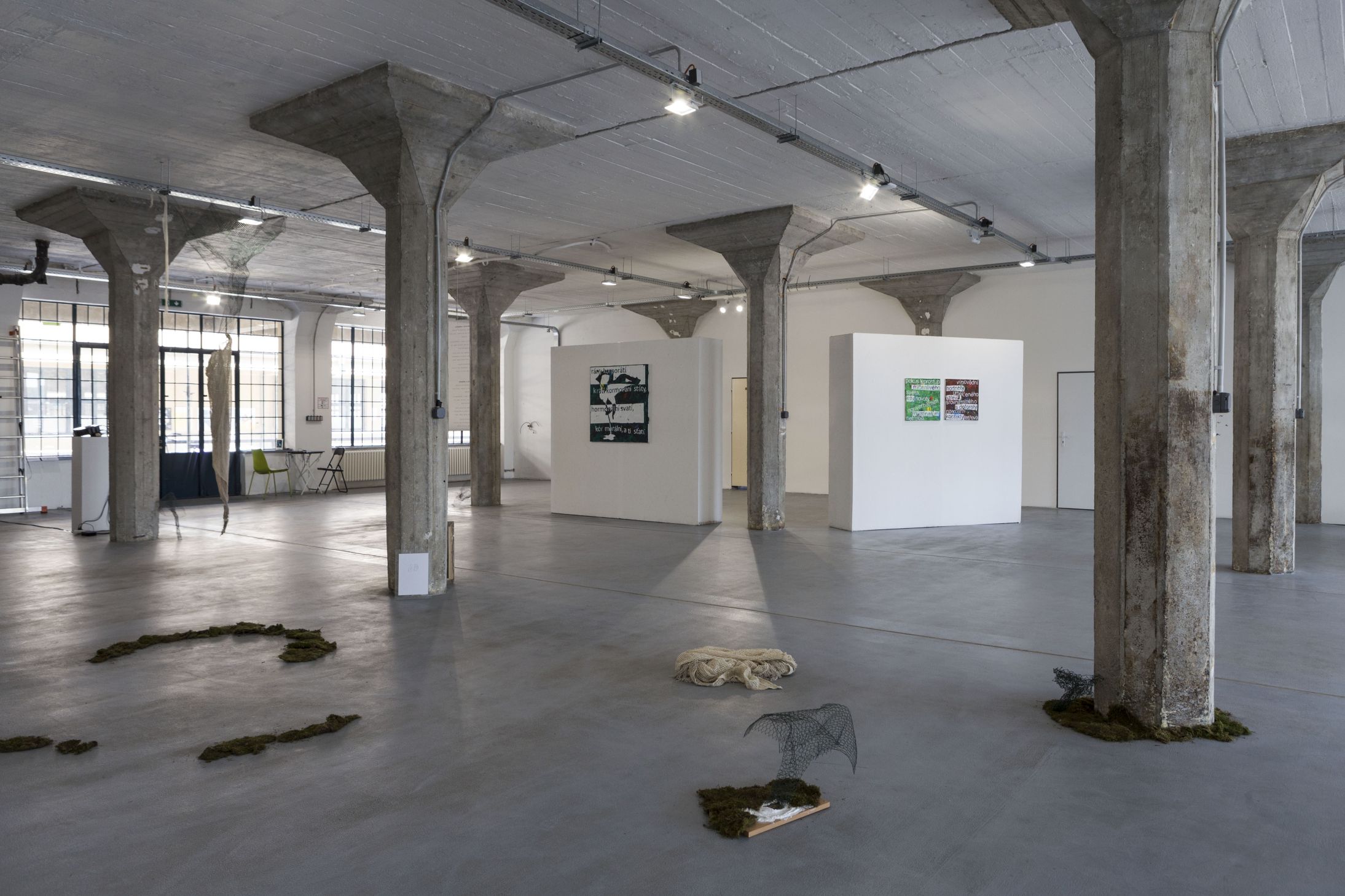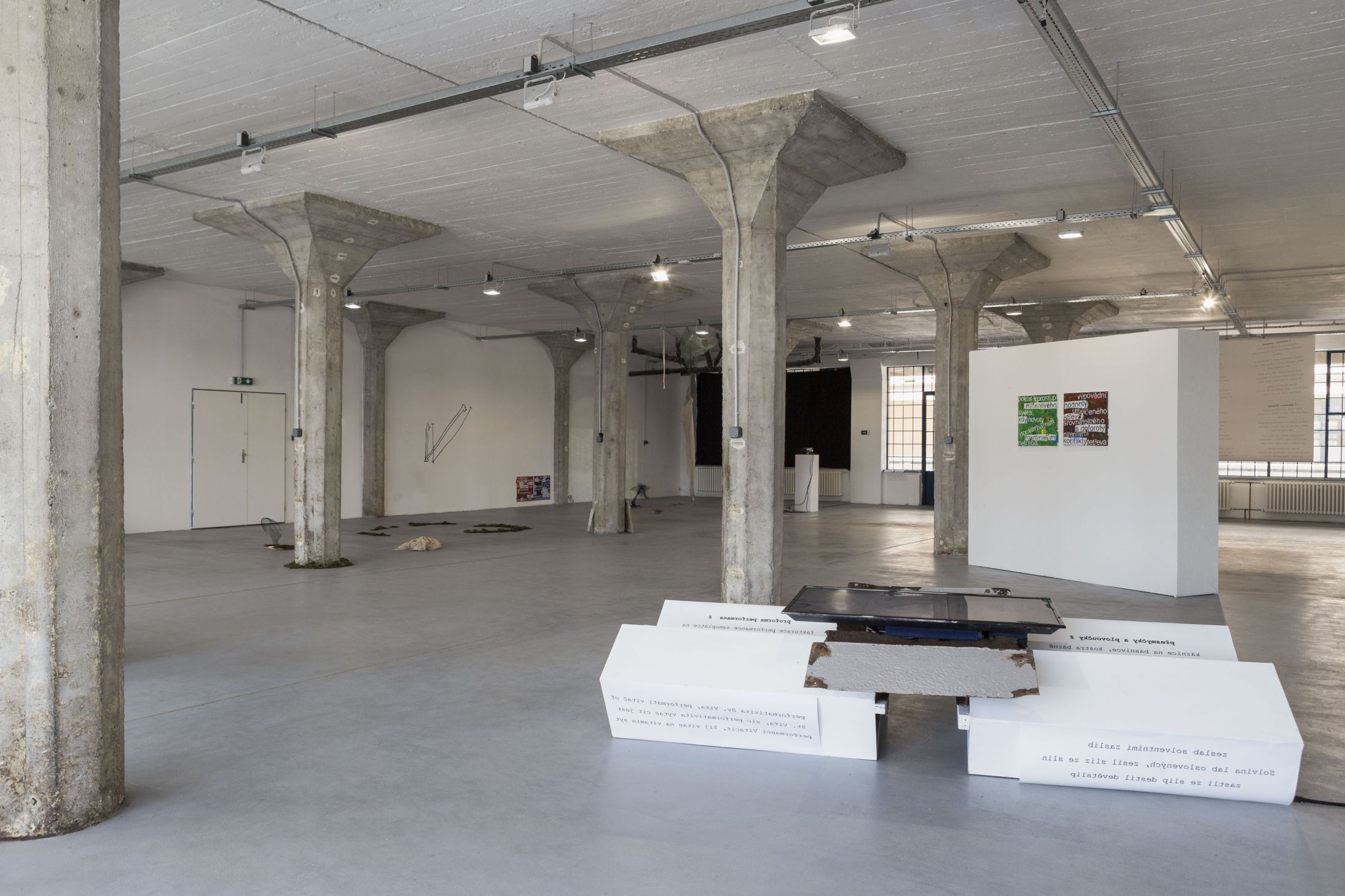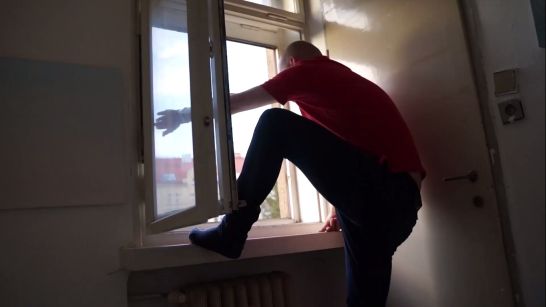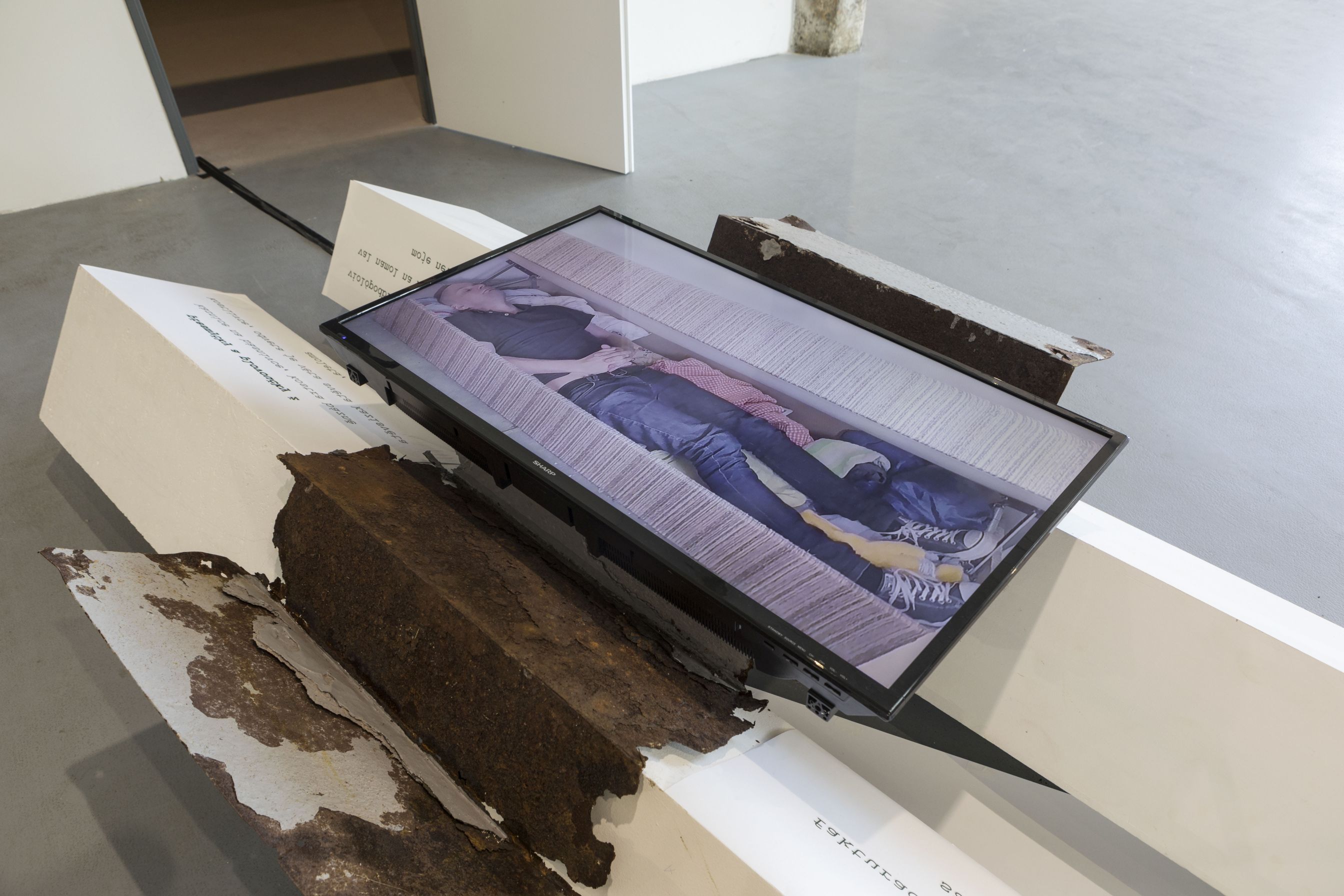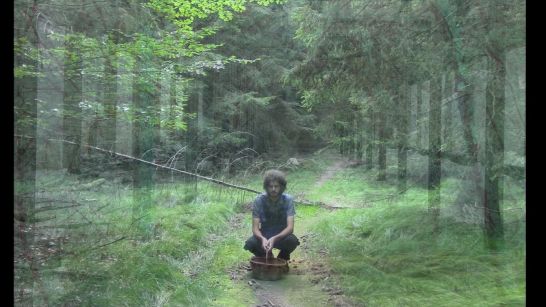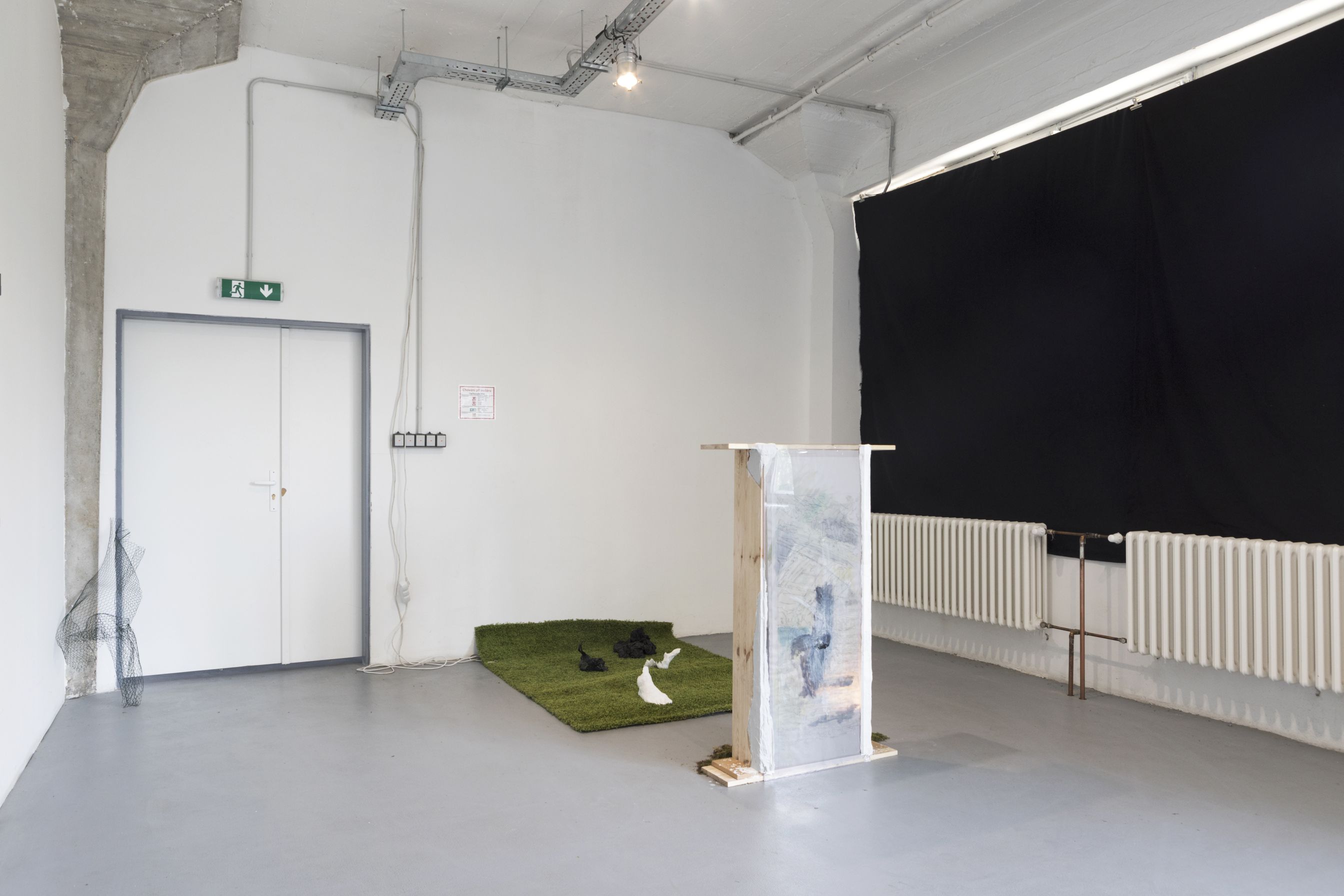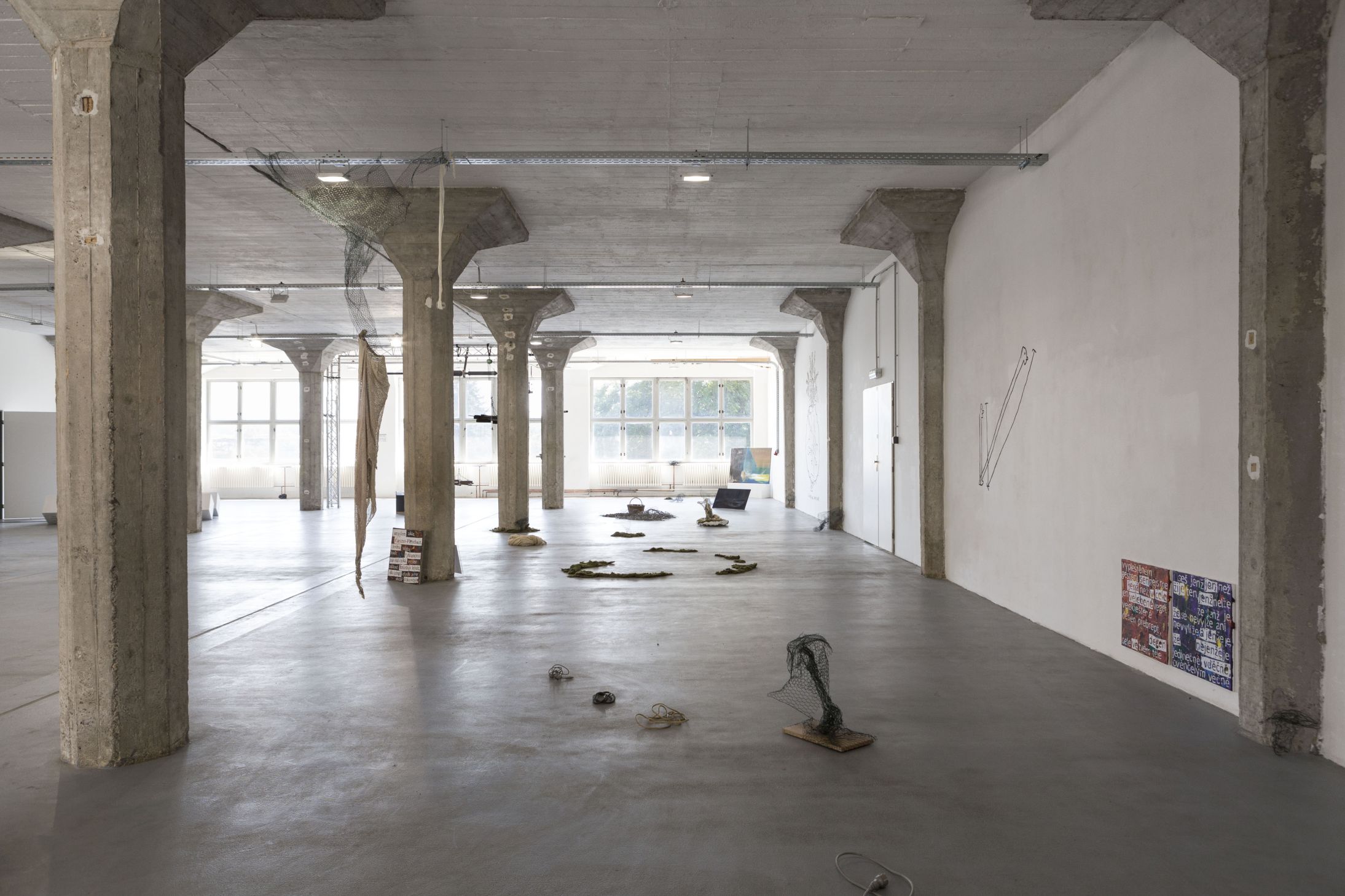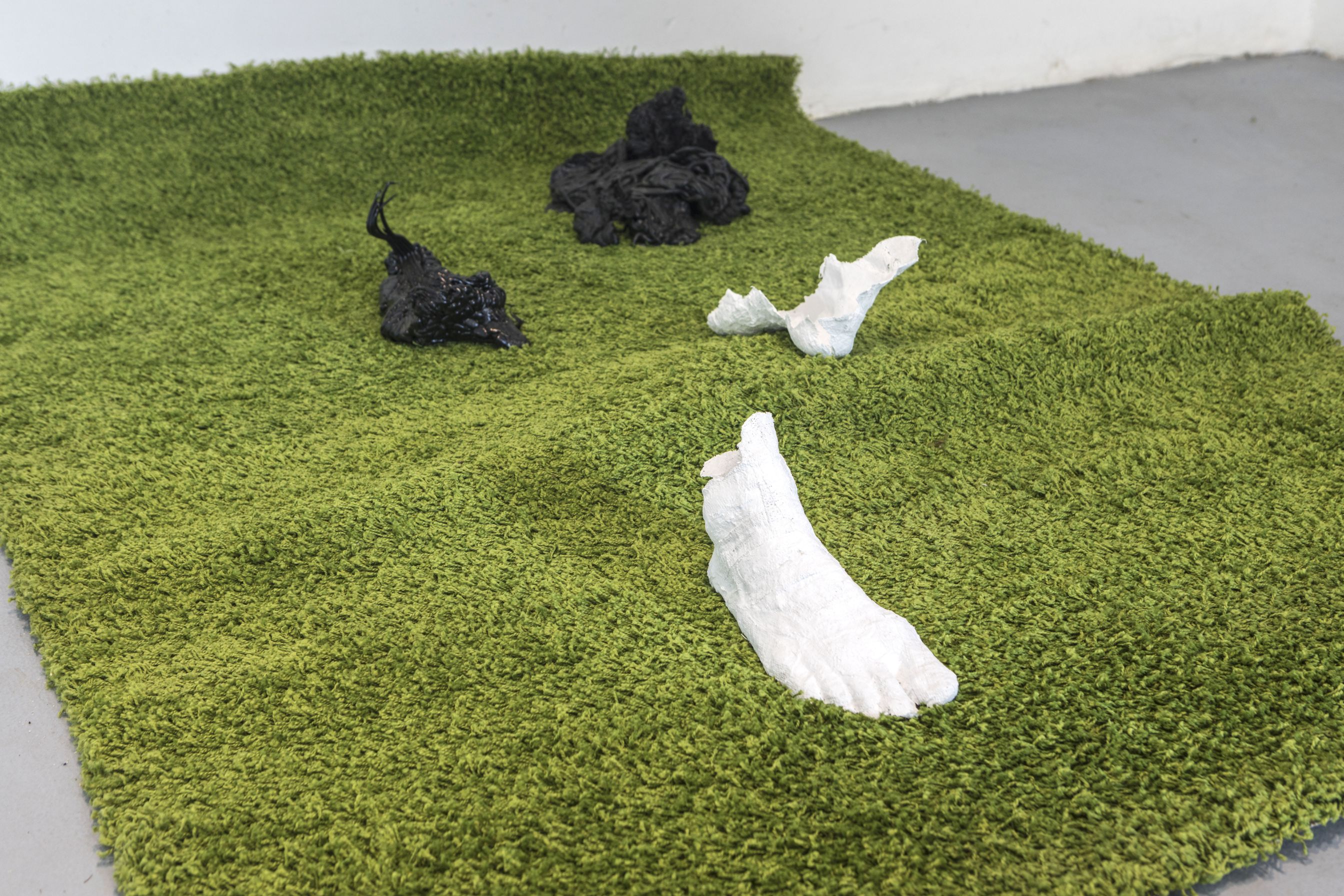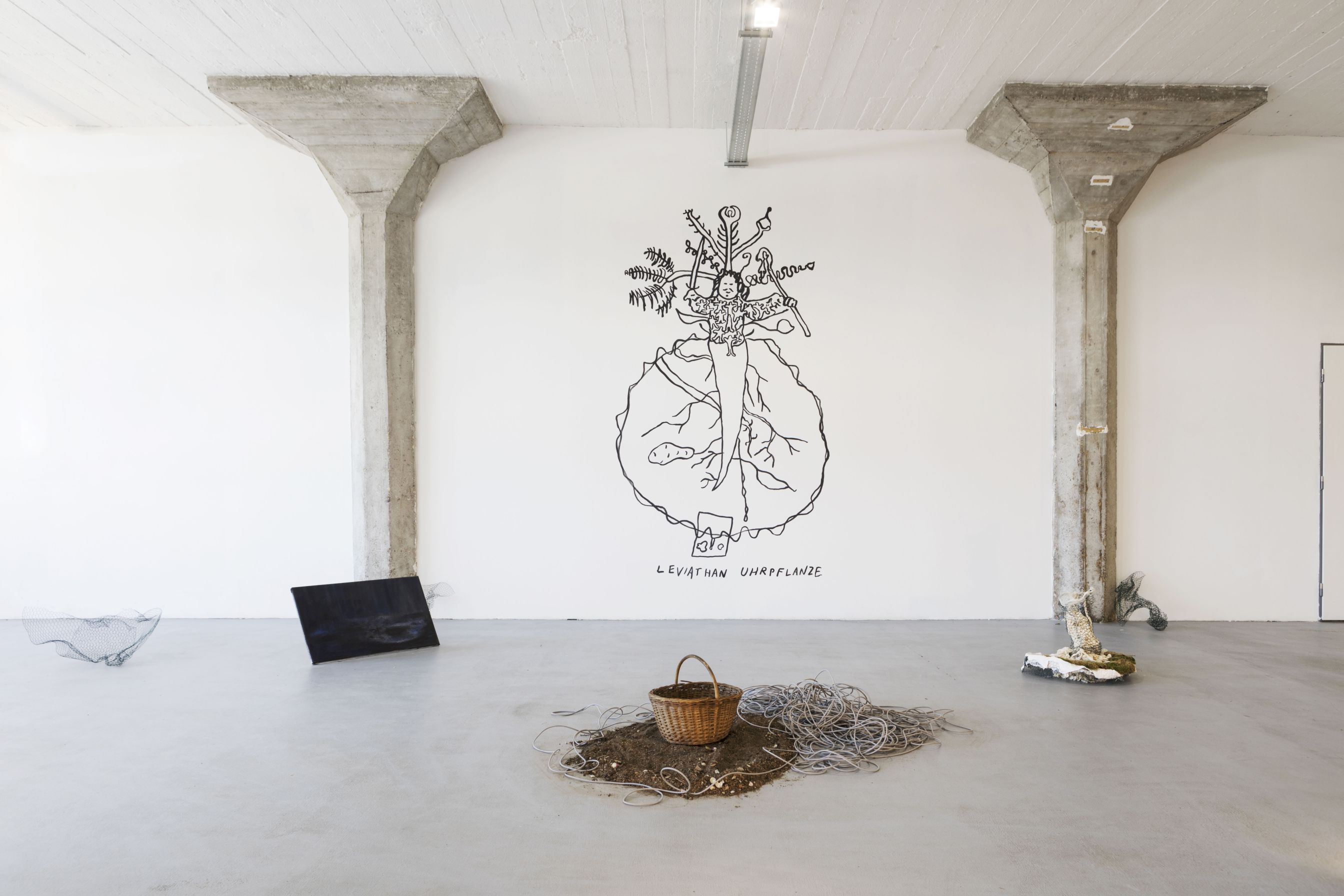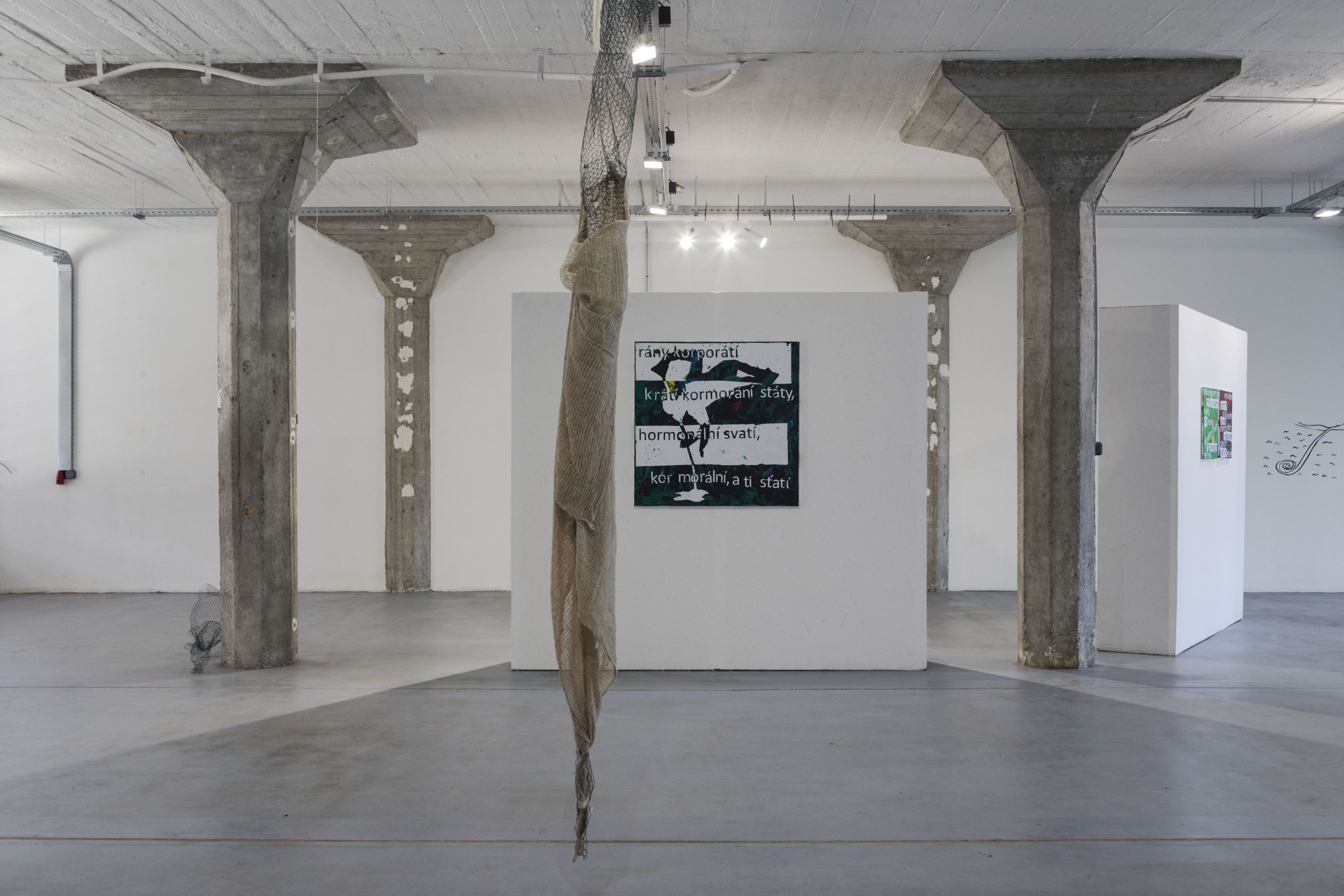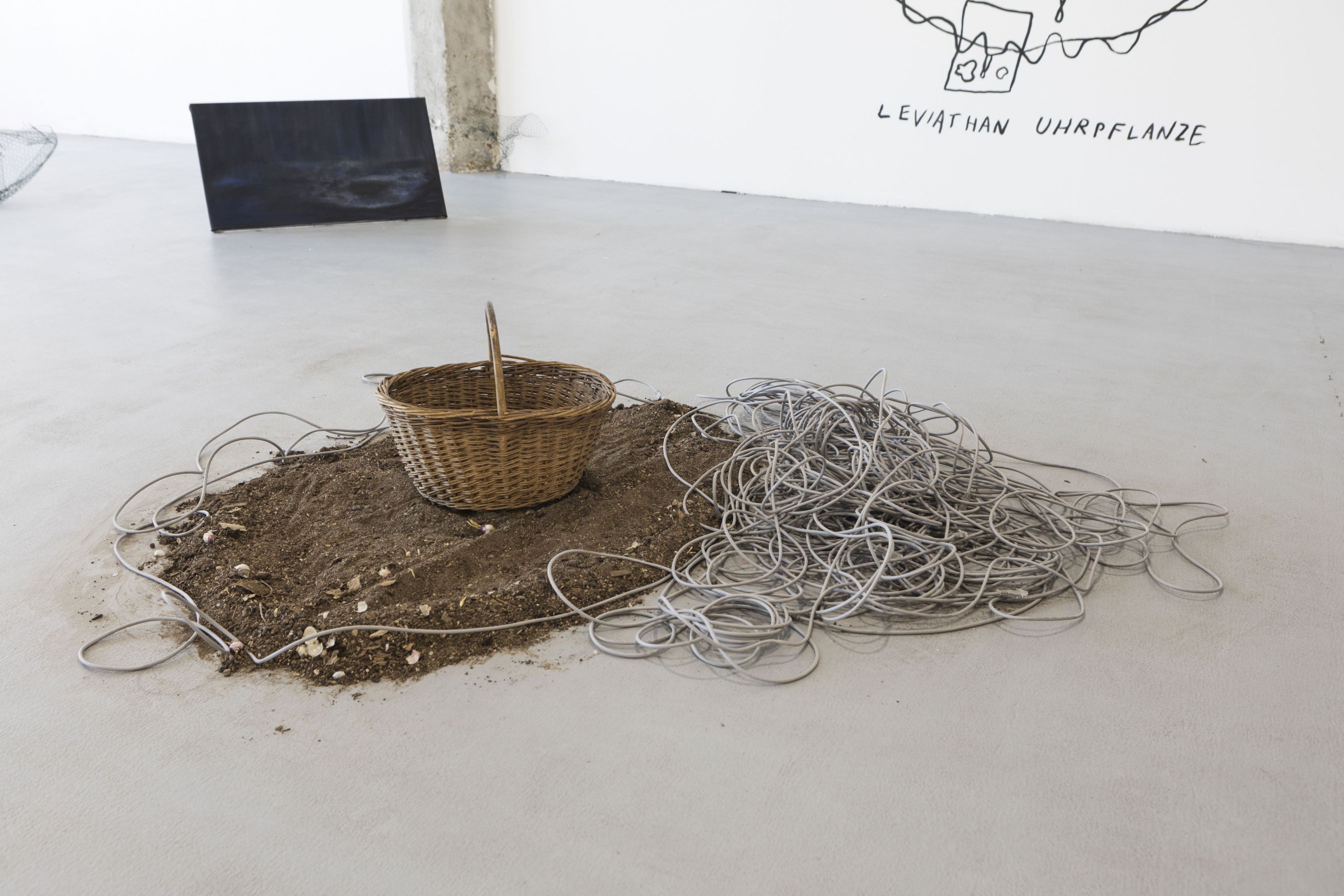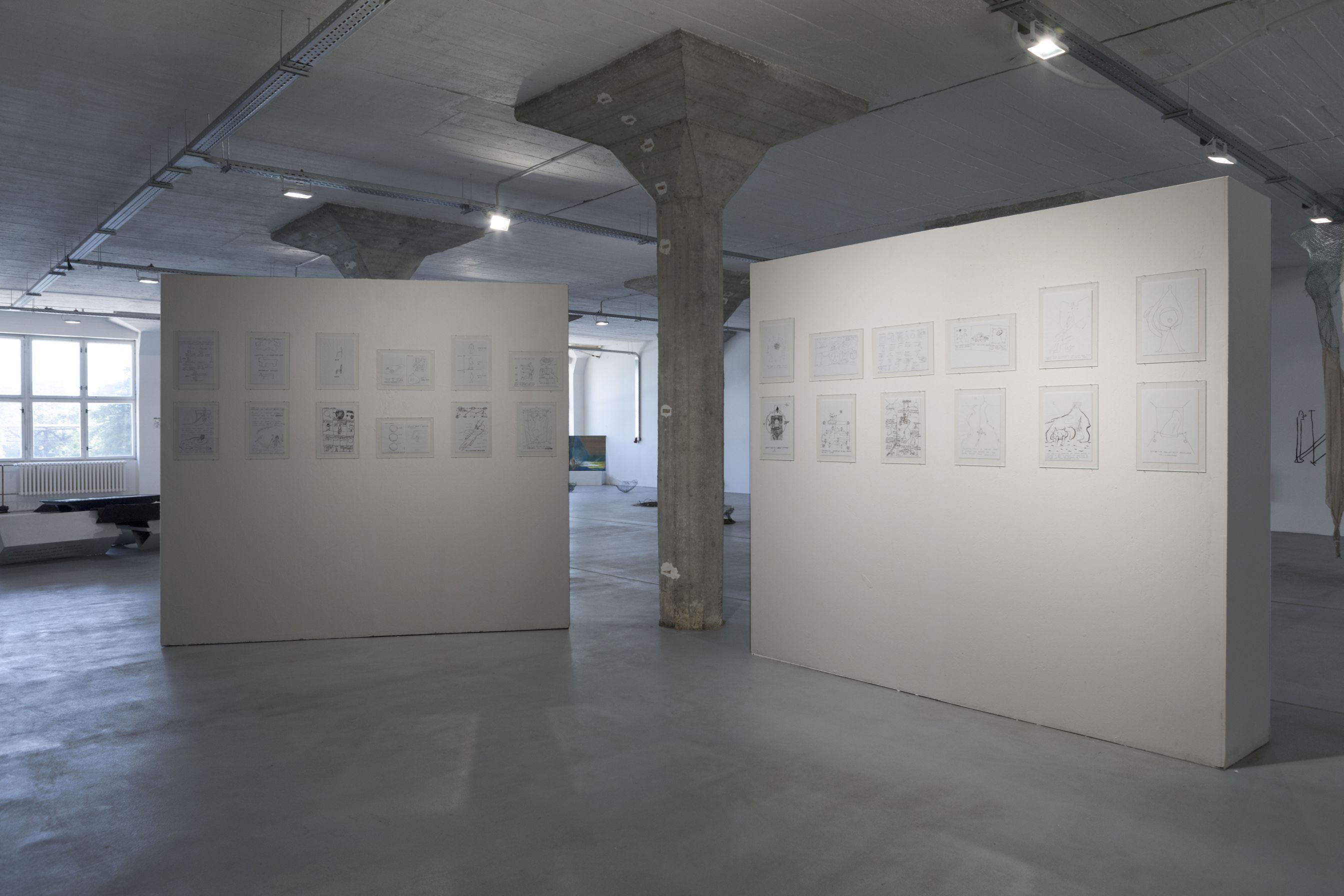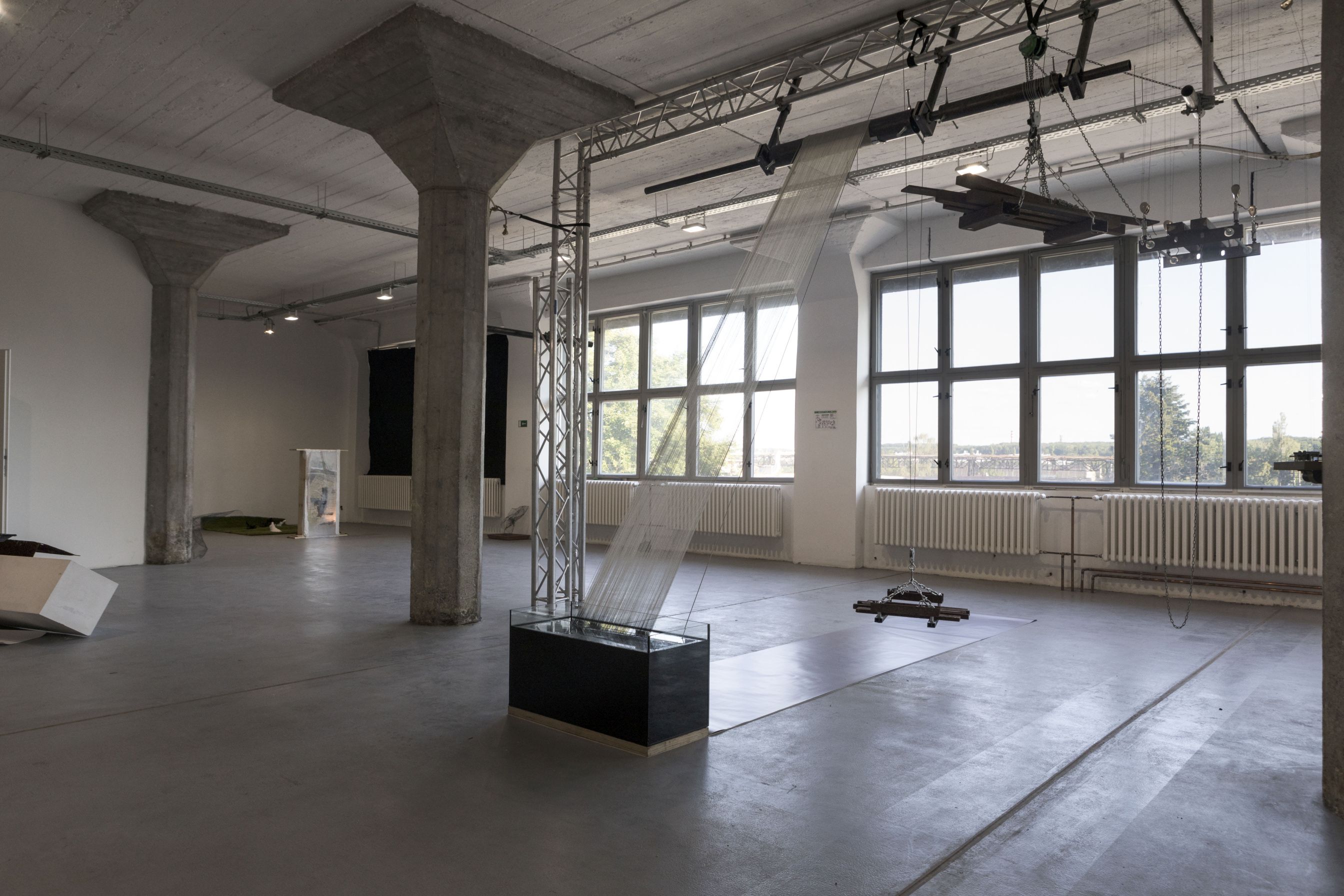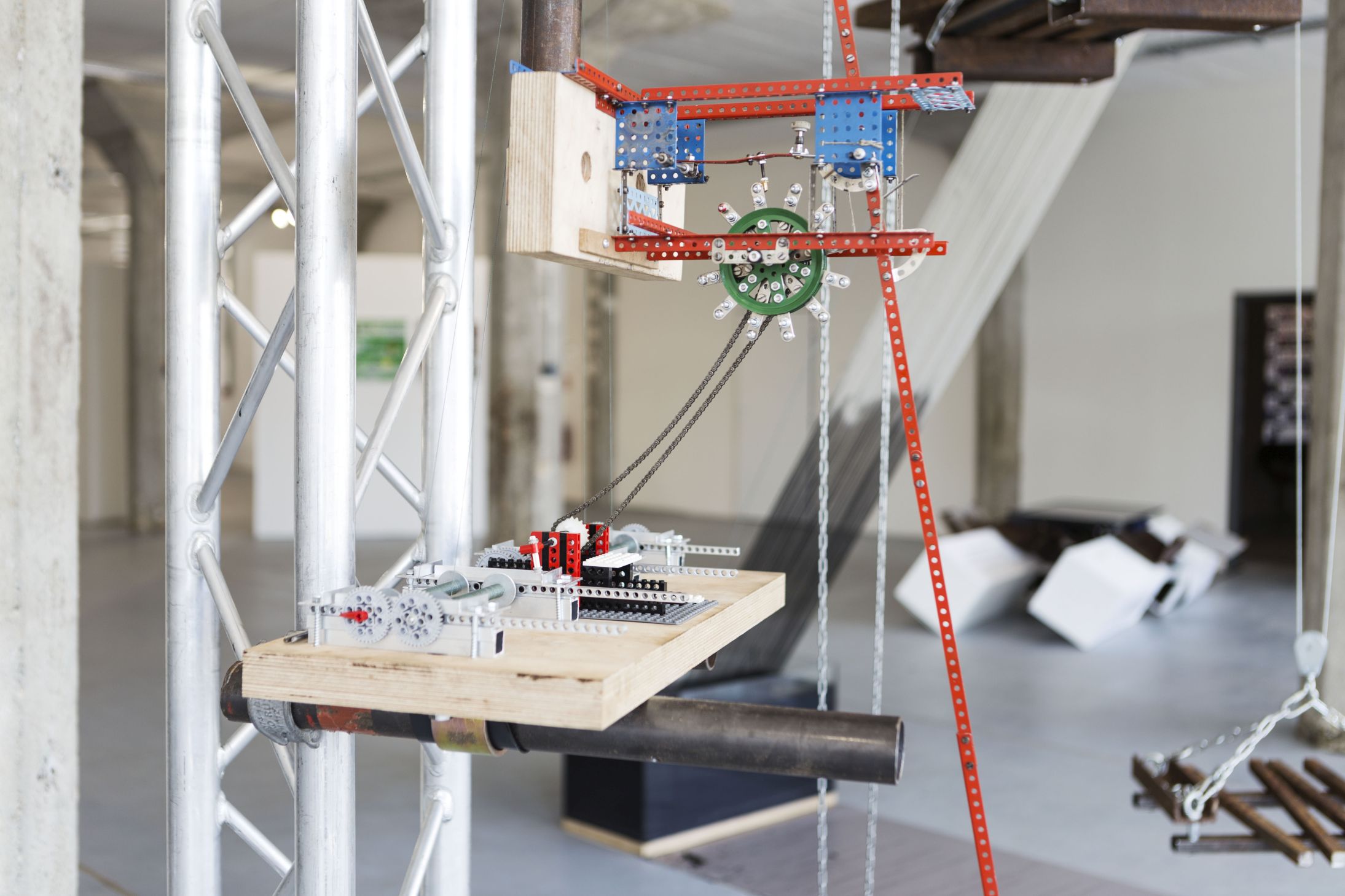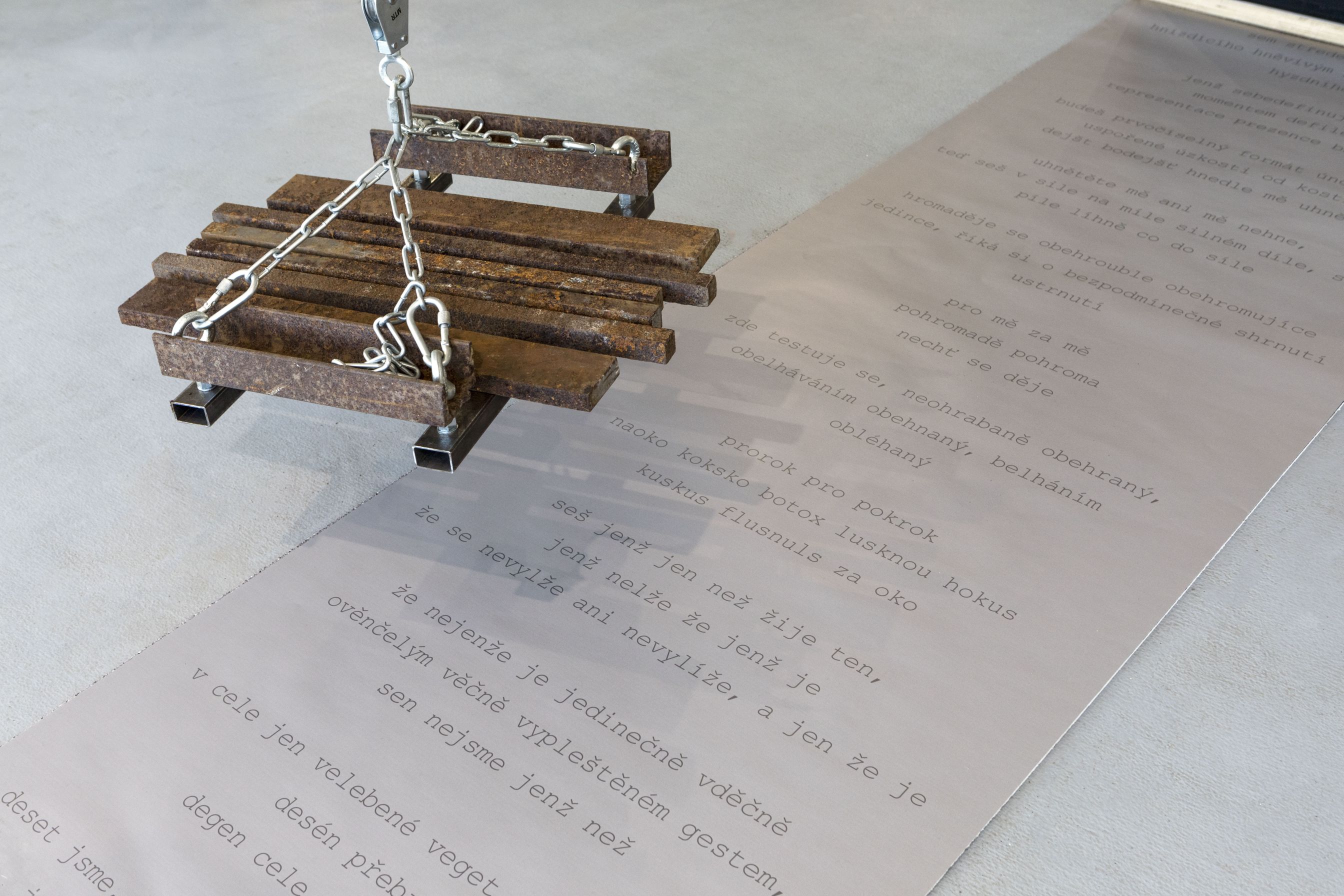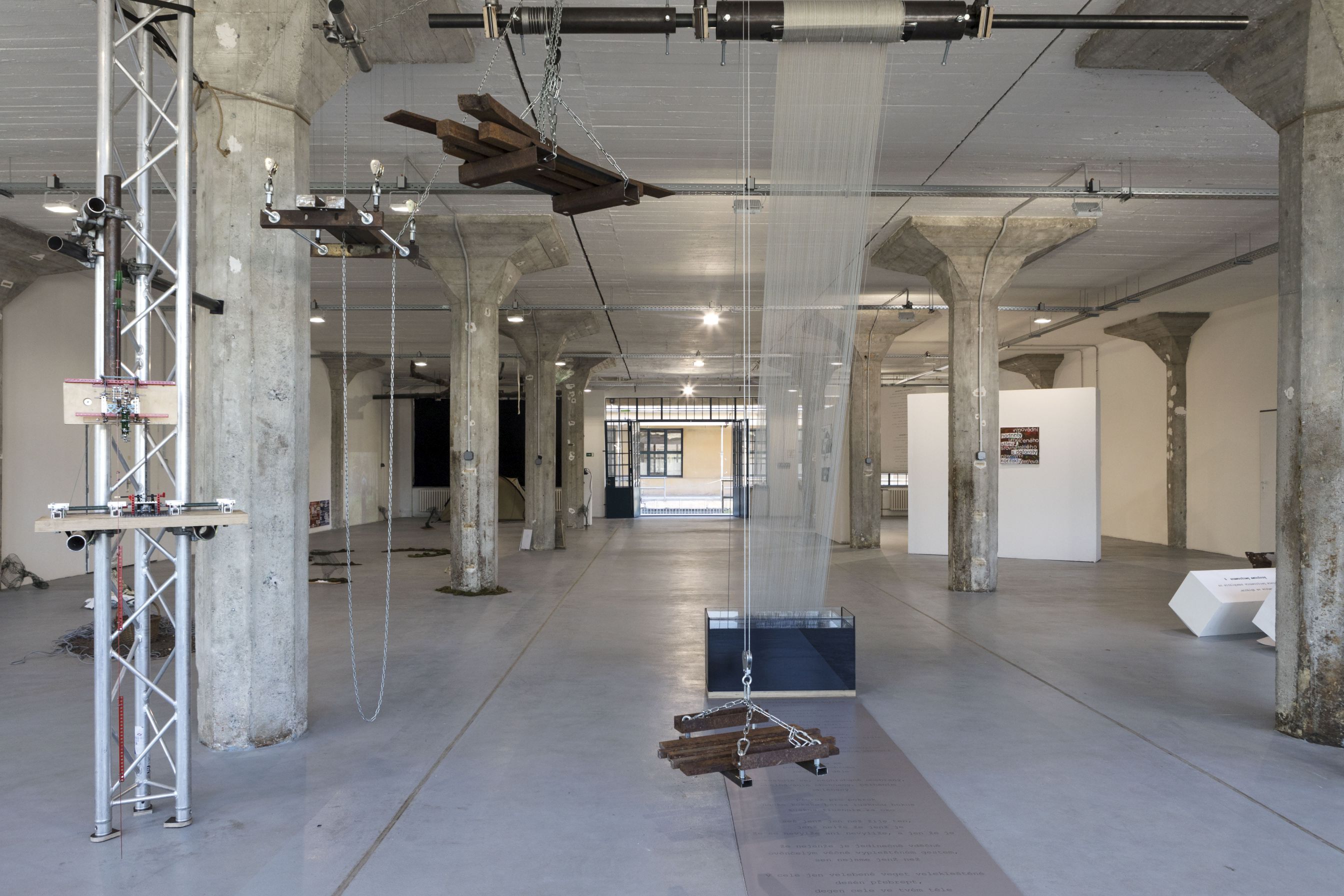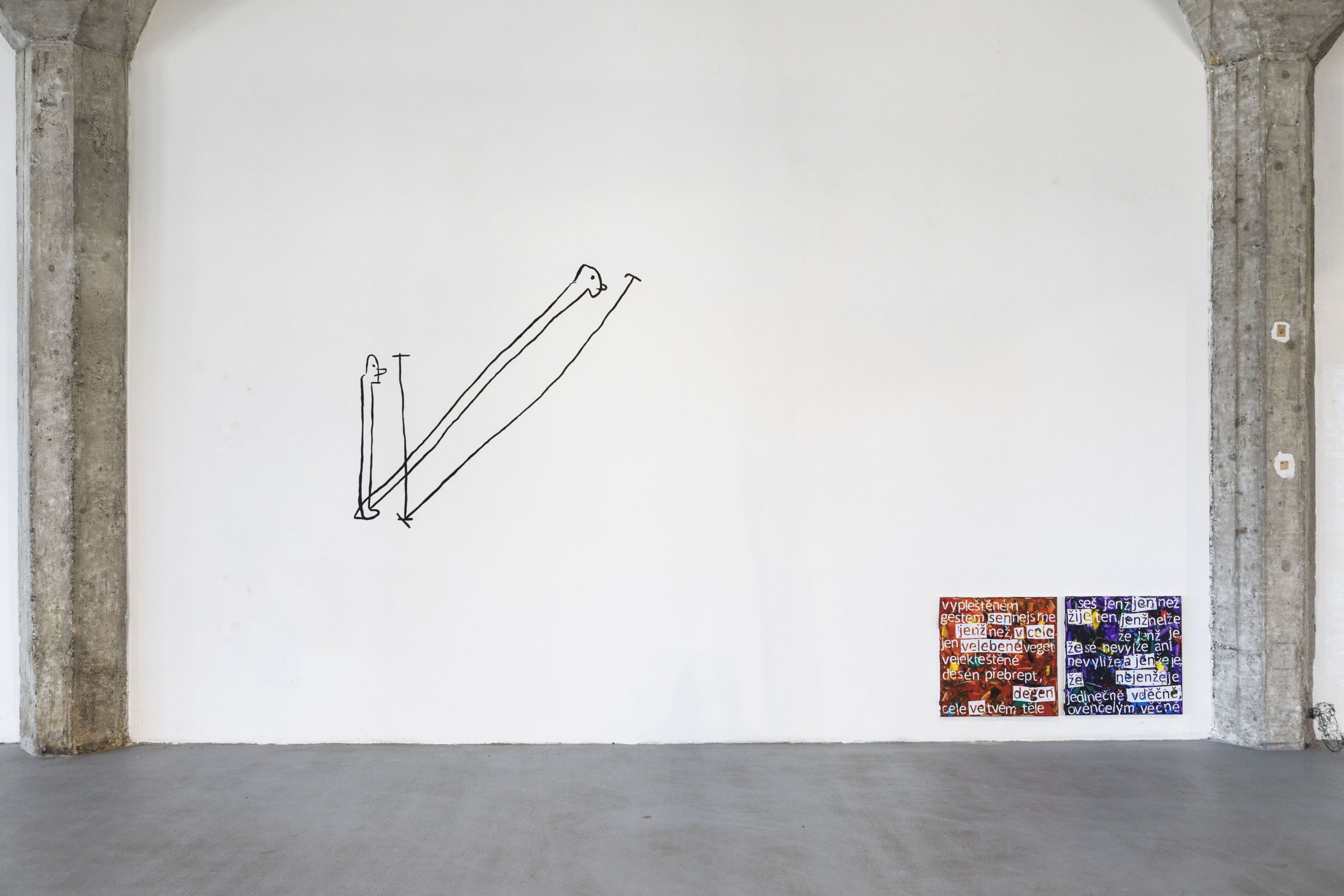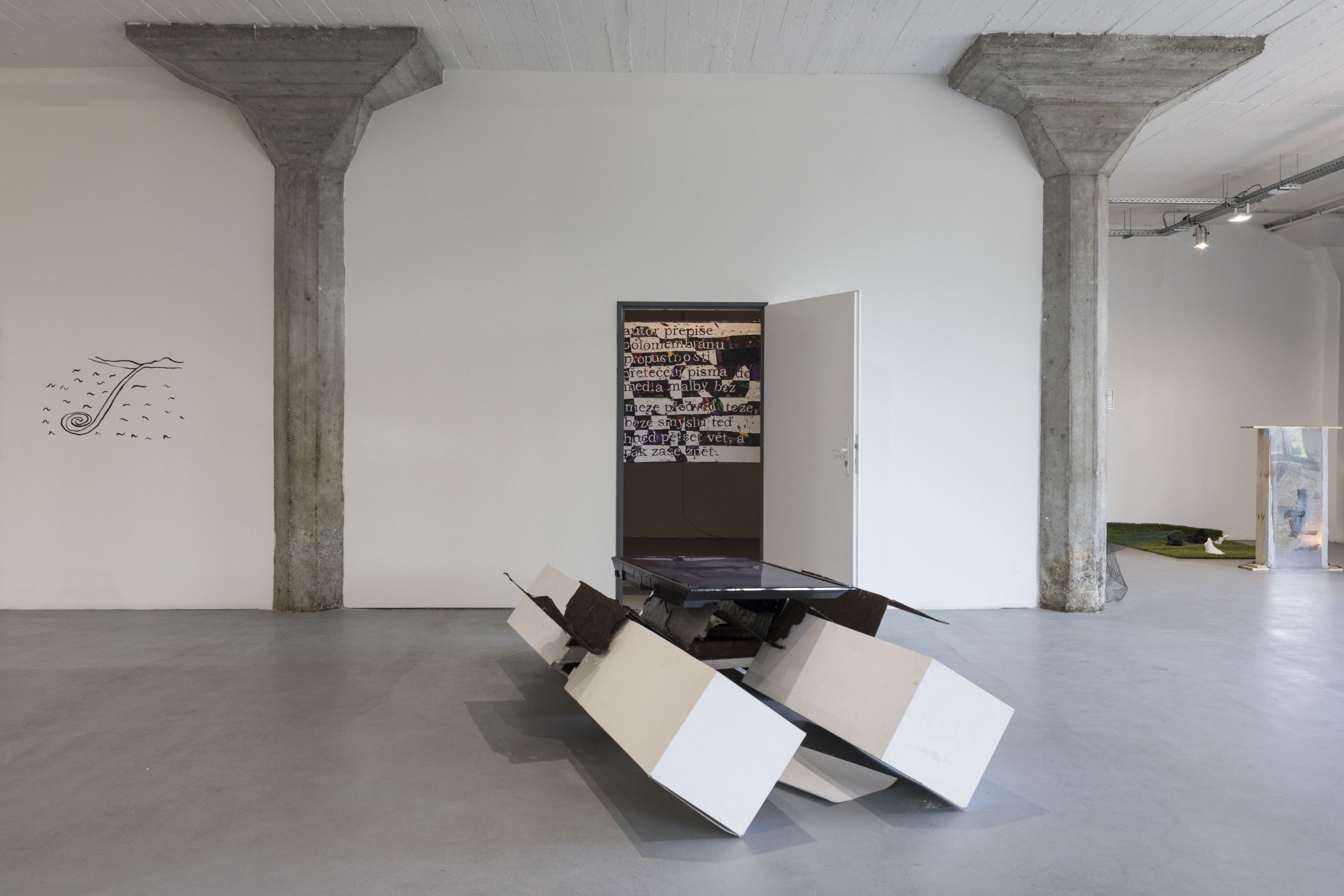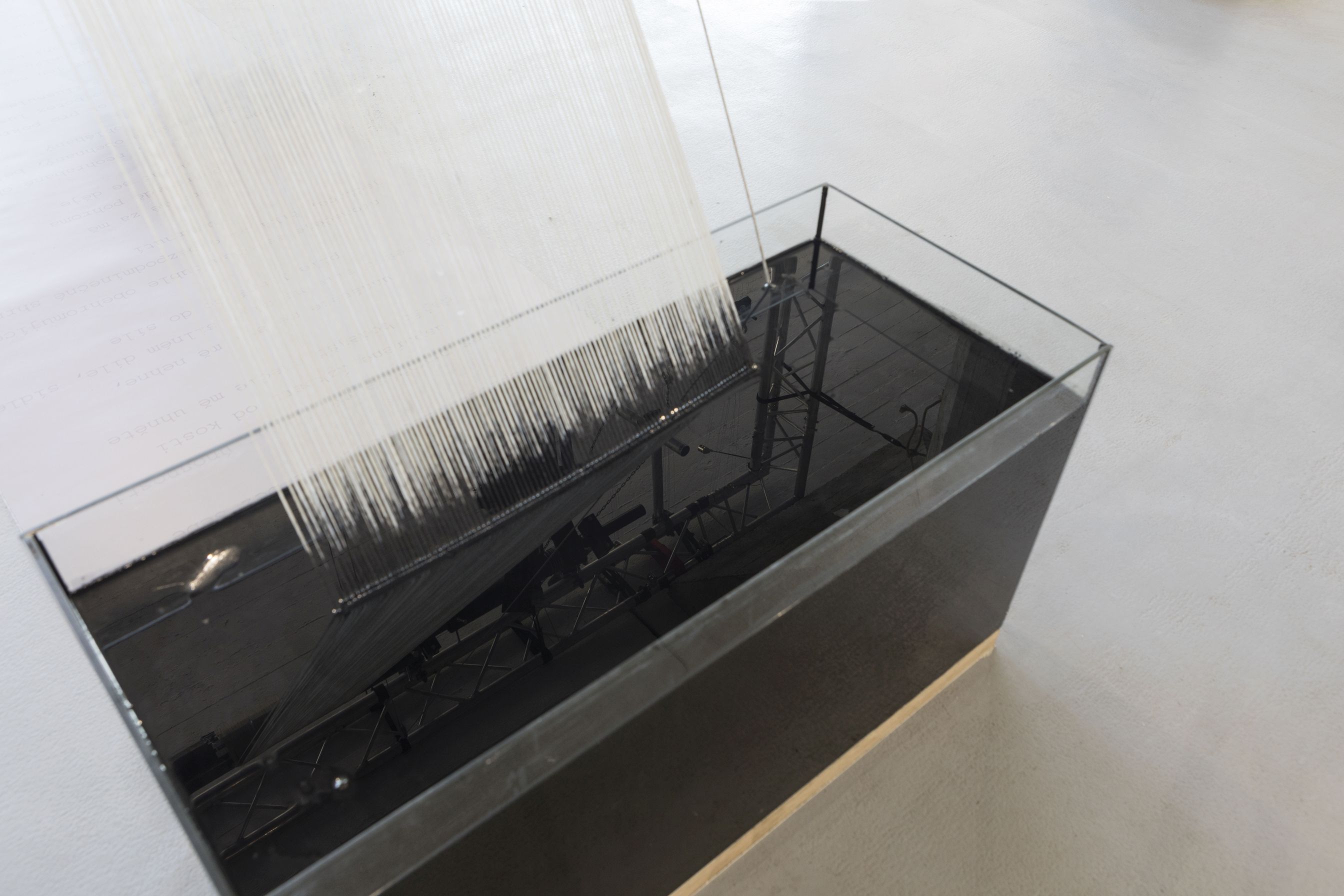Artists: David Helán, Alexandra Naušová, Lucie Nováčková, Martin Vlček, Aleš Zapletal
Title: We met Plato, but we did not read his books
Venue: The White Room, Pragovka
Curator: Barbora Hájková
Graphic design: Pavel Tichon
Photo: Magda Dubnova
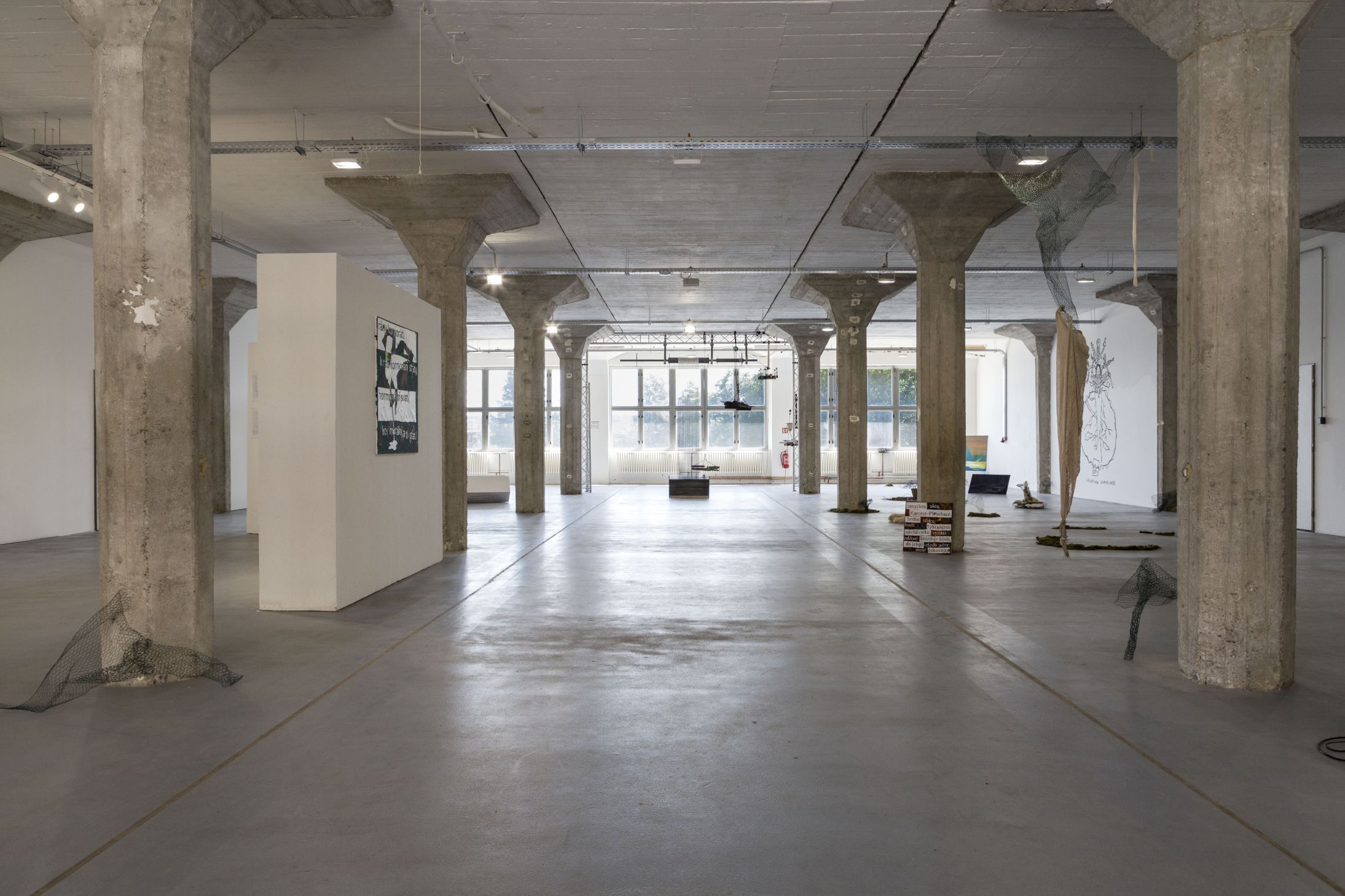
The exhibition introduces possible ways to grasp, interpret, misinterpret, and parody philosophical theories and thoughts. Ironic title of the exhibition refers to the overusing of links and quotations of theoretical texts which are used by curators and artists to contextualize their works. Plato is in the title as a symbolic example – for instance, many people came across with Plato’s allegory of the cave, but could they use it correctly?
Aleš Zapletal focuses on the visualization of abstract concepts and metaphors, relying on rationality in his drawings. David Helán, on the other hand, works with meta-rational muse, based on which he creates seemingly illogical language systems. Alexandra Naušová uses universal concepts to evoke images in listeners’ minds that are non-transferable because of their own experience. Lucie Nováčková draw mostly from inner dialogue in her works, too – she tries to convey the metaphor of the works with her own mind, thanks to the strong temporality and processualism. The very last level of the exhibition is the works of Martin Vlček. He draws attention to the impossibility of simultaneous non-existence in two independent places – nature and industrial space.
David Helán is an artist whose works flow and display on various media and systems of thinking. He focuses mainly on working with text, neologisms, dadaism, and poetry. For his project in The White Room, David – a self-centred speleologist – plans to install a series of paintings that combine internally made dialogues and slightly larger poems than his usual ones, the quality of which he would like to support by the amount of time spent on their creation, plus he added some figurative contours. The core of this figurative moment is photographs from David’s performances. Equally, a new dictionary headword follows his present, long-term artwork. The headword in its actual adjustment form works with the space physically as well as metaphysically.
Alexandra Naušová is finishing her bachelor’s degree at the Digital Media atelier of Michaela Thelenová and Radek Jendera in Ústí nad Labem. With humorous exaggeration, she uses her processual performance and audio-visual works to criticize the phenomena that circulate around in society, art, technological development, or nature. For the “Potkali jsme Platóna, ale nečetli jsme ho” (We met Plato, but we did not read his books”) exhibition, she is preparing a new record in her Audiovýlety (Audio-trips) series that will guide you through the cave, using universal concepts.
Lucie Nováčková graduated from Textile Creation (University of Hradec Králové) and Painting (at Tomáš Lahoda’s school, Faculty of Fine Arts of the Brno University of Technology). In addition to being producent and curator at the Pragovka Gallery, she is interested in making her own artworks, too. Lucie’s goal of the last few years has been to develop her own technology within fibre arts, which she used, for example, in her artwork presented at the Flying Inn exhibition. In the Černá latence / Black Latency installation, she combines painting and threads in one object – processional sculpture. So, the installation is a combination of author’s both basic art approaches. The mechanism used in looms becomes a medium that transforms the element of painting from the colour in the aquarium into a living organism, a gradually flourishing matter.
Martin Vlček absolved scenography of alternative and puppet theatre (T. Žižka, M. Pěchouček, R. Smolík) at the Academy of Performing Arts in Prague, culturology at the Faculty of Arts of the Charles University in Prague, and he got his bachelor’s degree in new media (A. Matasová, V. Merta) at the Faculty of Design and Art in Pilsen. He combines artistic and performative principles in his work. In his projects, he tries to ”transfer“ places (that are about to vanish or no longer exist) onto new places that could, to some extent, adopt the authenticity of their origin in a new context. That is why Martin uses mostly projection in his work as it is something between tangible and virtual in its basis. Some of his random realizations: home transferred “to neighbours’”, to gallery, “flat in a tent”, events in former textile factories (body – place relationship), and propaganda themes (fictions pretending to be real). At the exhibition at the Pragovka Gallery, inspired by Plato, Martin once again brings themes of being in an industrial space that blends with natural elements and processes in this case.
Aleš Zapletal studied at the Faculty of Fine Arts at the Brno University of Technology and he graduated from the Academy of Arts, Architecture and Design in Prague in 2016. He. He is currently finishing his PhD degree at the Vladimír Skrepl’s atelier at the Academy of Fine Arts, Prague. Aleš’s main field ispainting, in which he portrays modifications of human artefacts in the imaginative landscapes of the anthropocene. Aleš focuses on the visual interpretation and misinterpretation of philosophy and scientific topics in his latest works. In the “Potkali jsme Platóna, ale nečetli jsme ho” (“We met Plato, but we did not read his books”) project, he exhibits series of drawings not yet introduced. The drawings were created on the basis of research thesis that Aleš is conducting in his dissertation – the dissertation deals with the visualization of abstract concepts and metaphors that rely on rationality.
